Trusting the process: unlocking service challenges with human-centred design
At the recent Research Support Services (RSS) Conference at The University of Edinburgh, I had the privilege of both attending and presenting. Alongside Nick Daniels, our Senior Content Designer, we led an interactive session exploring real-world service challenges through the lens of human-centred design. This approach isn’t about quick fixes—it’s about deeply understanding and addressing the core needs and frustrations of the people we aim to support.
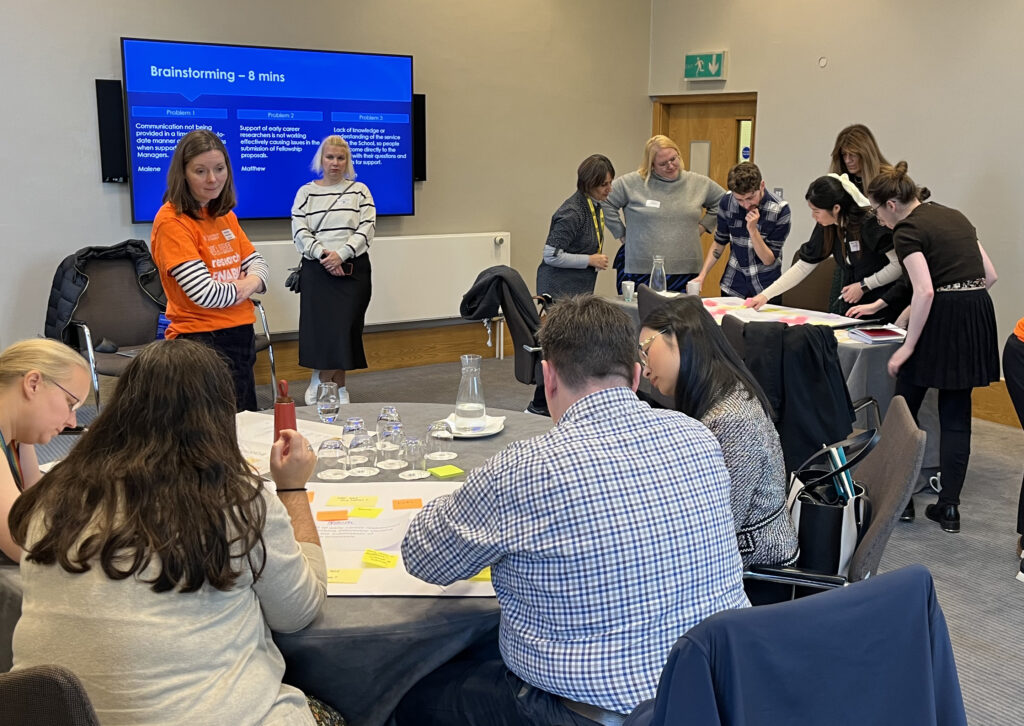
Attendees using the Brainstorming technique
Research Support Services Conference (University login required)
Experience and engagement
As a first-time presenter to the RSS Conference, I was inspired by the energy and insights of colleagues from across the University. Their diverse perspectives enriched the session, shedding light on common yet often-overlooked challenges.
Learn by doing
Our session was aimed at being practical, hands-on, and engaging. In just 45 minutes, participants:
- Gained fresh insights: They explored specific service challenges and the user frustrations behind them.
- Discovered connections: Discussions revealed how issues across different departments often overlap.
- Co-created potential ideas for change: Teams shared perspectives and crafted ideas collaboratively.
- Worked fast and lean: By focusing their efforts, participants demonstrated how much can be achieved in a short time.
- Had fun: Above all, it was engaging and rewarding.
Real challenges, real solutions
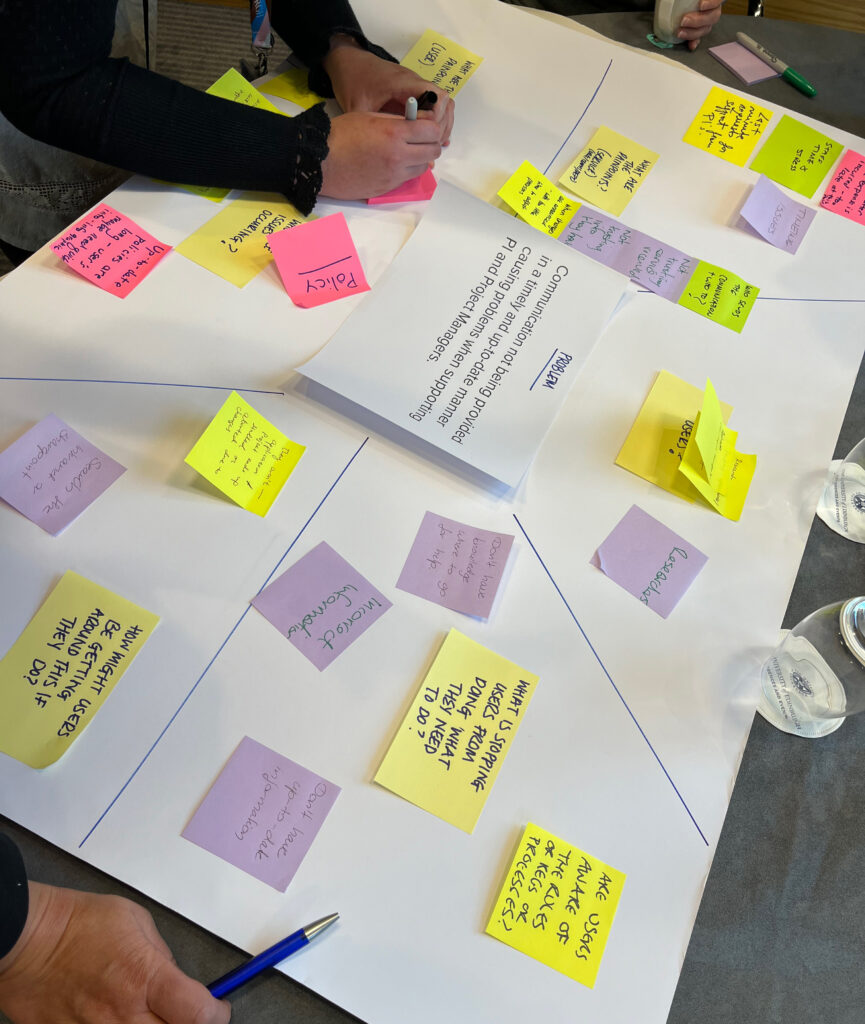
Group affinity mapping the sticky notes
In preparation for our workshop, participants submitted a range of service-related issues they encountered, which included:
- Communication delays: Problems with providing timely updates that crucially support Project Managers and Principal Investigators.
- Support for emerging researchers: Inefficiencies in assisting early career researchers with Fellowship proposal submissions.
- Service awareness: A general lack of knowledge about available services within a School, leading to under utilised and misdirected inquiries.
These challenges became the foundation for the session, where participants used human-centred design techniques to explore each problem, define the core issues and develop potential ideas for improvement.
Tools and techniques in action
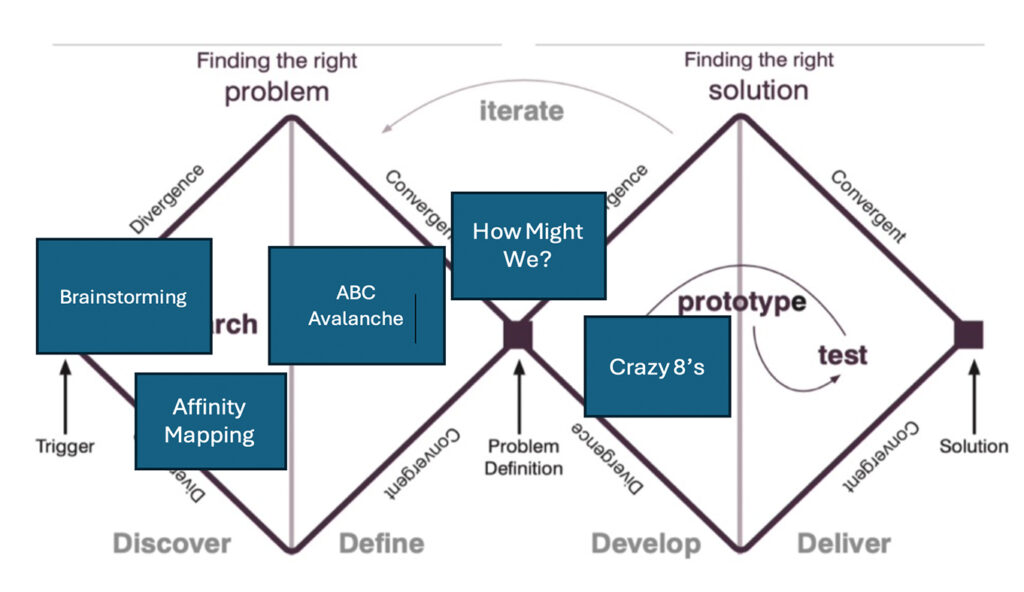
Double Diamond design process diagram indicating where techniques were used.
We structured the session using the Double Diamond framework, which was introduced as a model to help encourage the participants to explore problems broadly and then narrow down on the core issue (Discover, Define) and then focus on practical solutions (Develop, Deliver). Here’s how it unfolded:
- Brainstorming: Individually, participants generated ideas around the challenges, guided by prompt questions about user needs, obstacles, and frustrations.
- Affinity Mapping: Individuals assigned themselves to a specific problem where they continued to work in groups. Reviewing the responses shared they placed them into themes and prioritised the most pressing issues using dot voting.
- Service Design Academy’s ABC Avalanche: Focussing on the issue which had the most votes, participants used this quick, creative exercise to further brainstorm keywords tied to each letter of the alphabet to deepen understanding.
- Problem Statements: Teams framed the core issue as “How might we…” questions, narrowing the focus for solution design.
- Crazy 6’s (a take on Crazy 8’s): Participants sketched six solution ideas in six minutes — a fast-paced exercise to encourage creativity and variety.
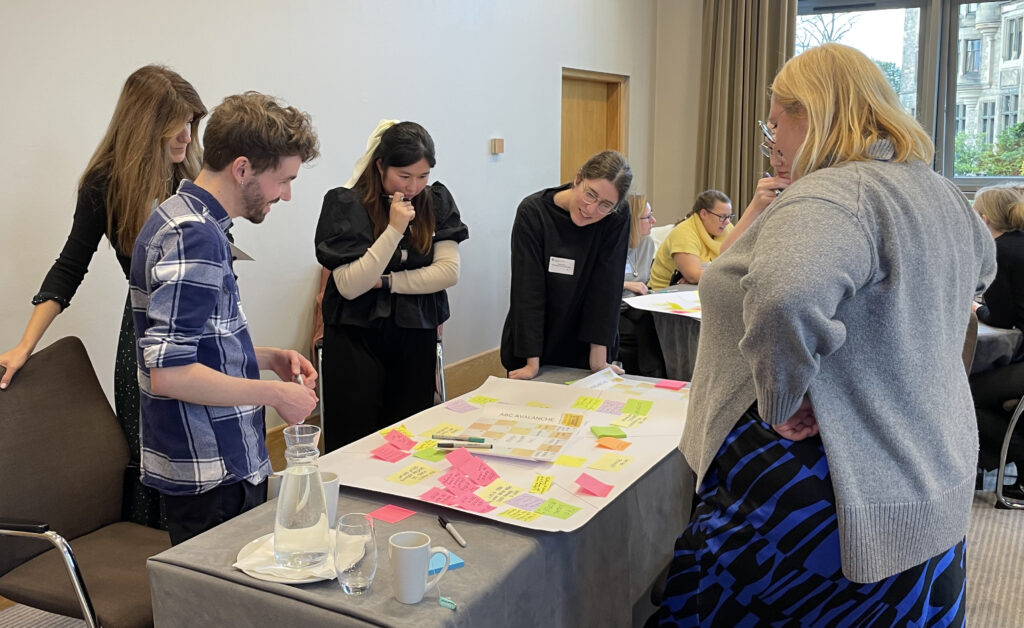
Group filling in the ABC Avalanche canvas
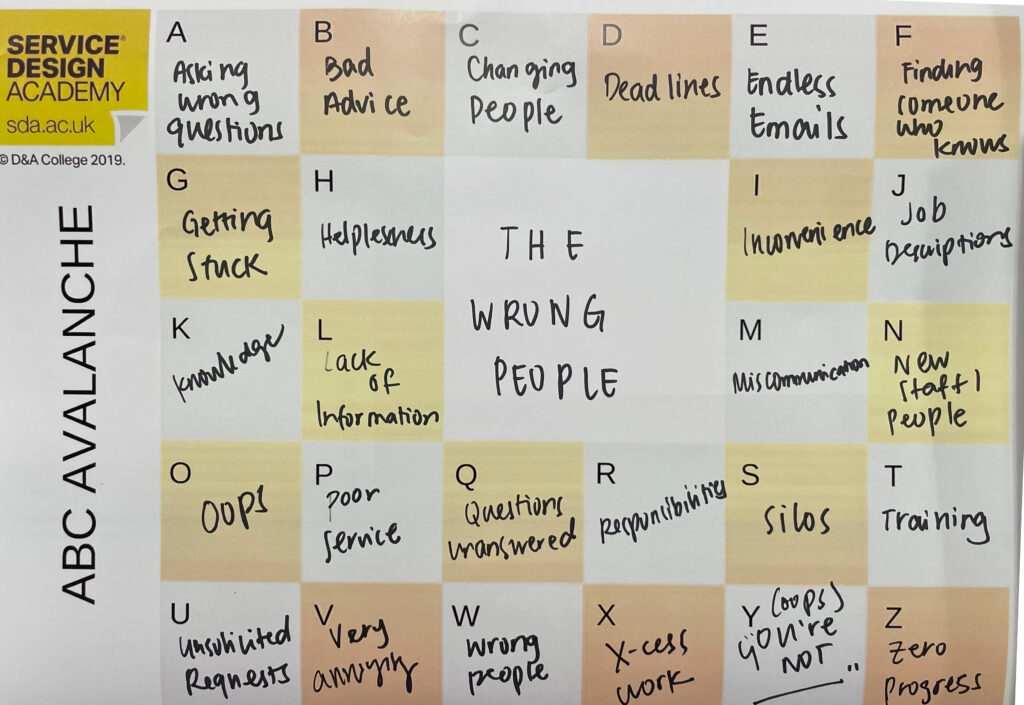
Image showing the ABC Avalanche canvas.
Positive feedback
The response to the session was overwhelmingly positive, with participants appreciating the interactive and fast-paced format. Here’s what some of them said:
“Really enjoyed the Trusting the Process session. It was practical and useful and a good way to meet people.”
“This was a really useful workshop, and the facilitators kept things moving at a good pace, which enabled participants to work creatively at problem solving! I’d be really interested in more/similar resources going forward.”
“I really enjoyed the designing services workshop because of its interactive format. I’d like more sessions like this where there is learning by doing.”
Looking ahead: April 2025 encore
Given the enthusiastic feedback, we’re excited to announce that we’ll be running an encore of this session in April 2025. This will be another opportunity for participants to experience the power of human-centered design, gain practical skills, and tackle real service challenges together.
Human-centered design isn’t just a framework; it’s a way to empower people to reimagine and improve the services they use every day. We can’t wait to continue this journey and see what new insights emerge!
You can also learn more about the next Research Support Services Conference (RSS)
Find out more about the techniques we used
If you’d like to find out more about the techniques we used, please see the following resources:

